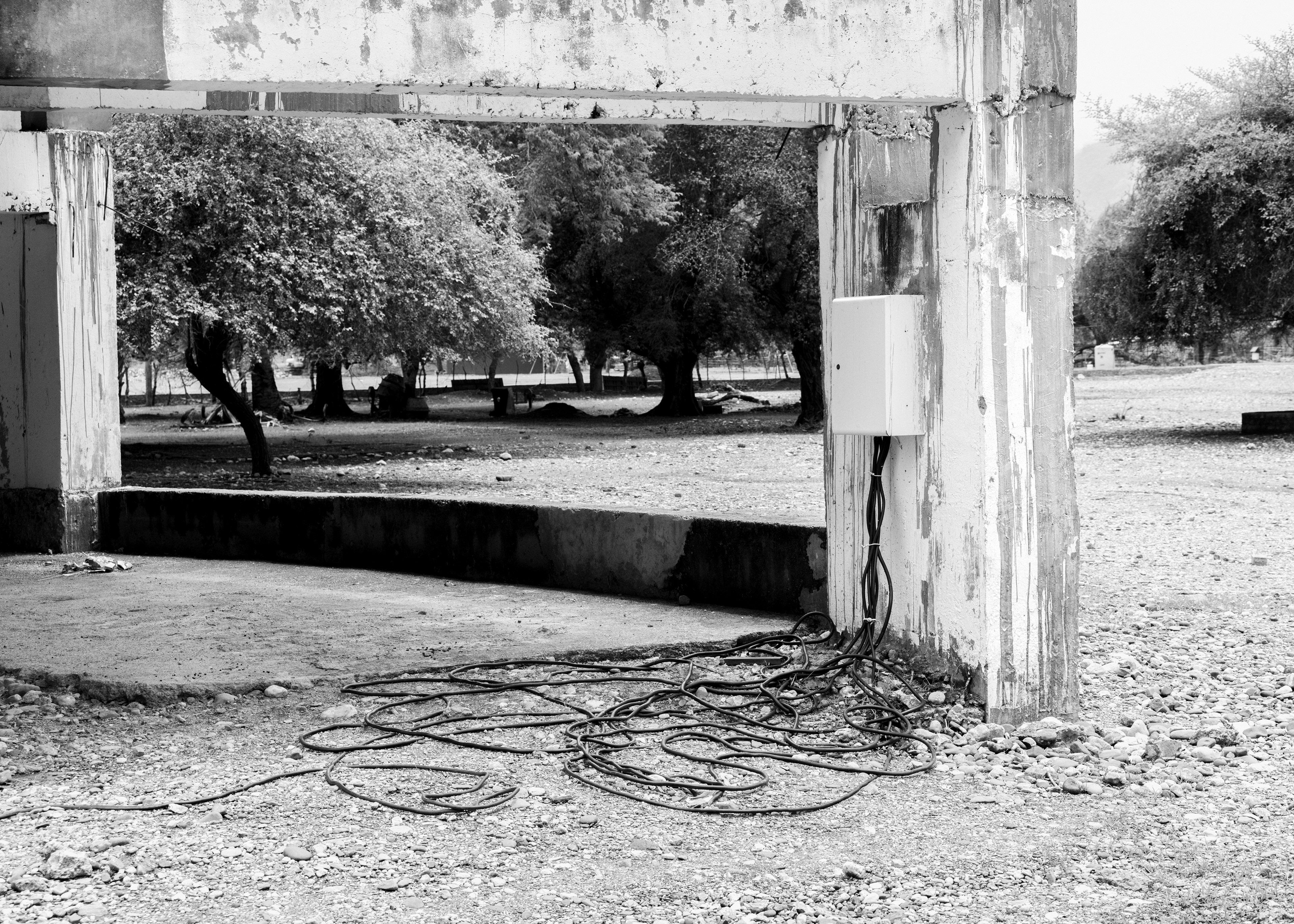
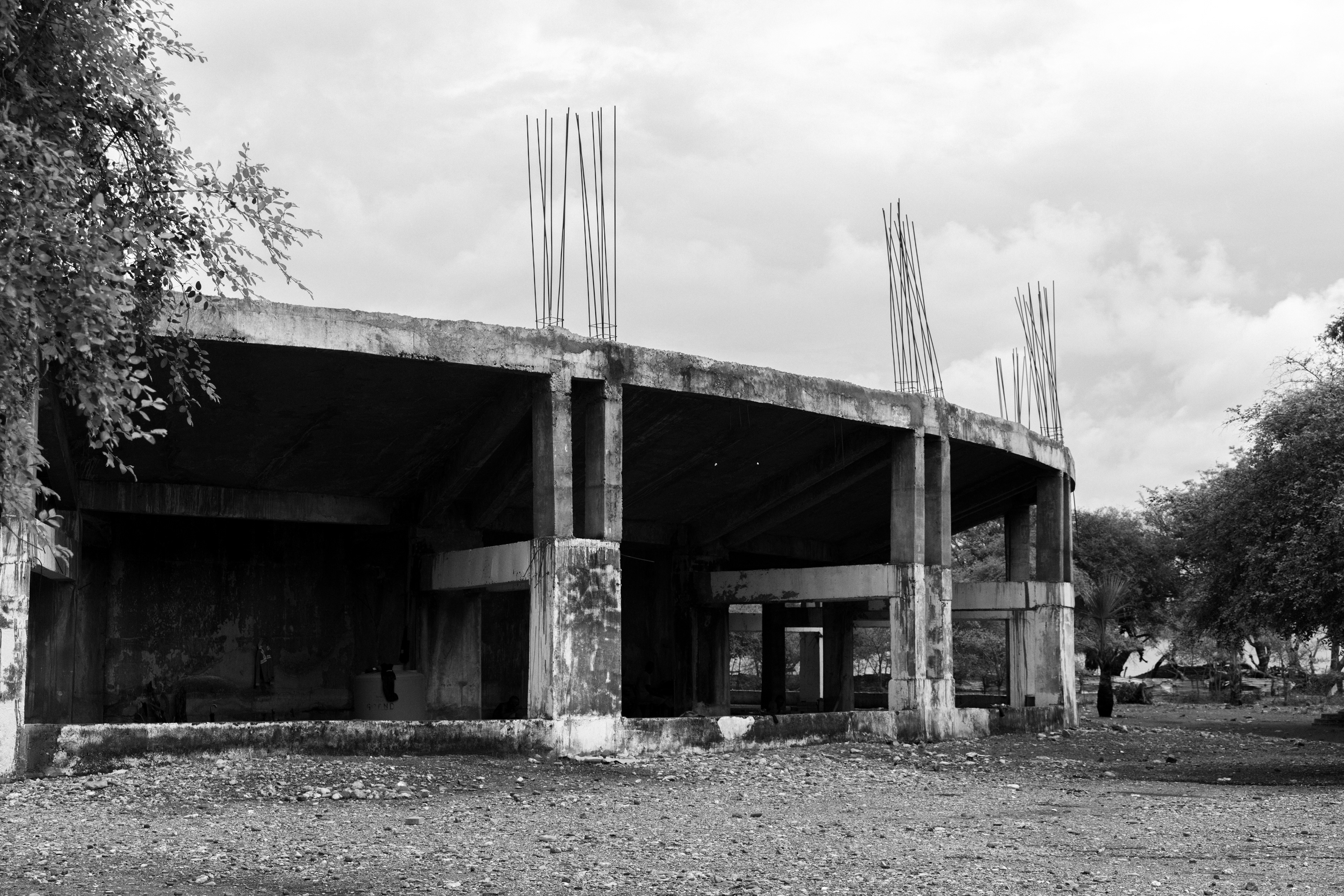
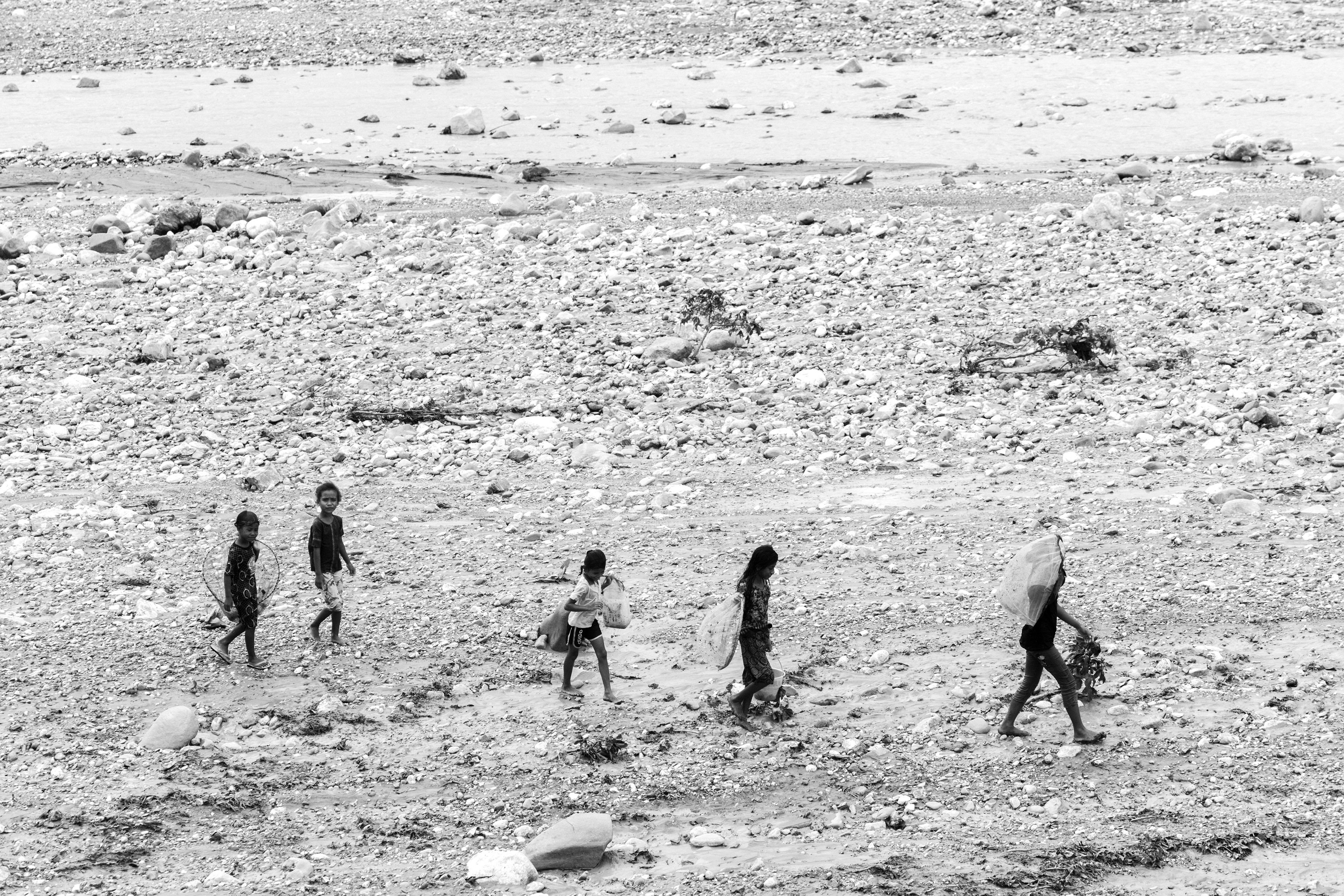
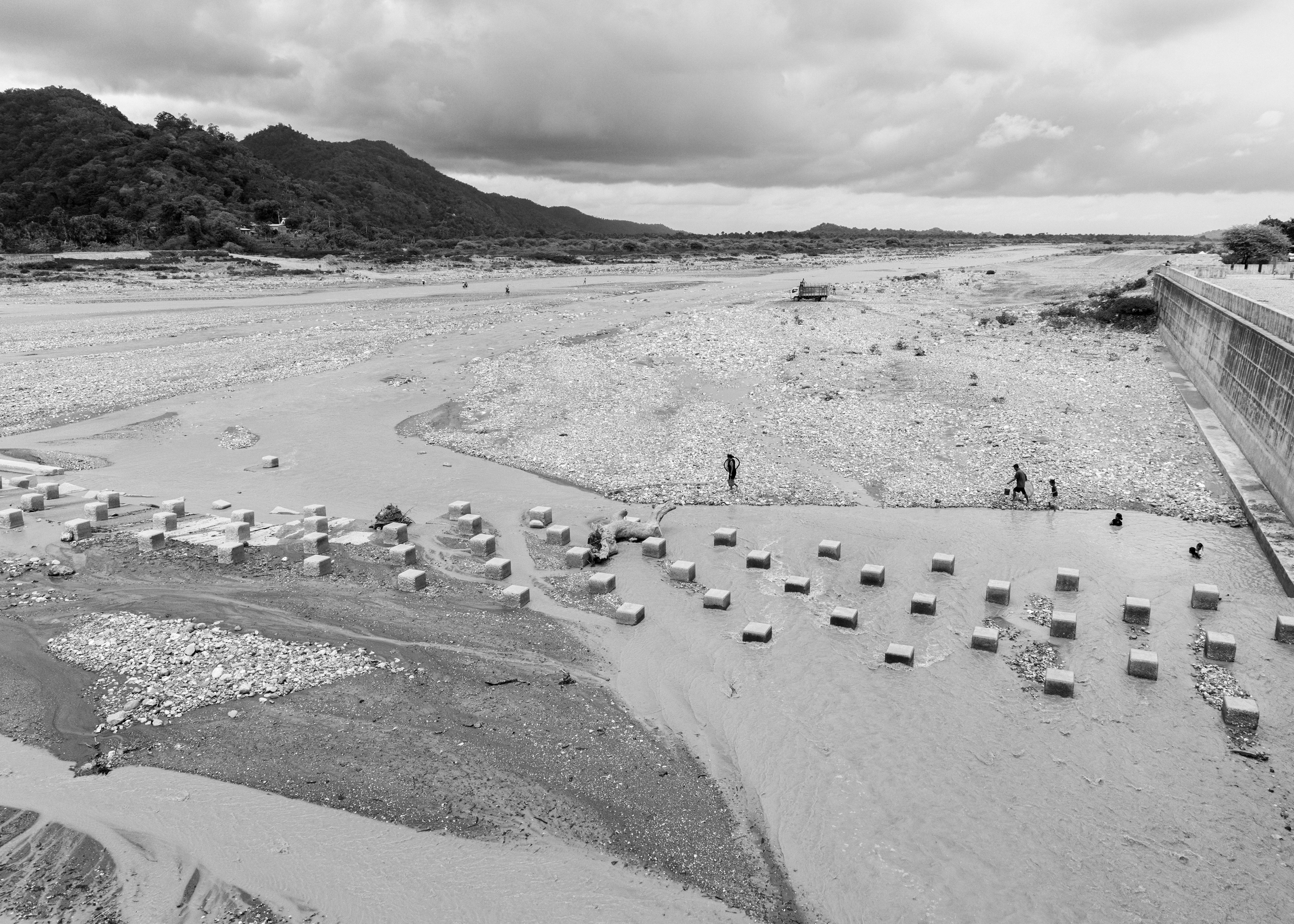
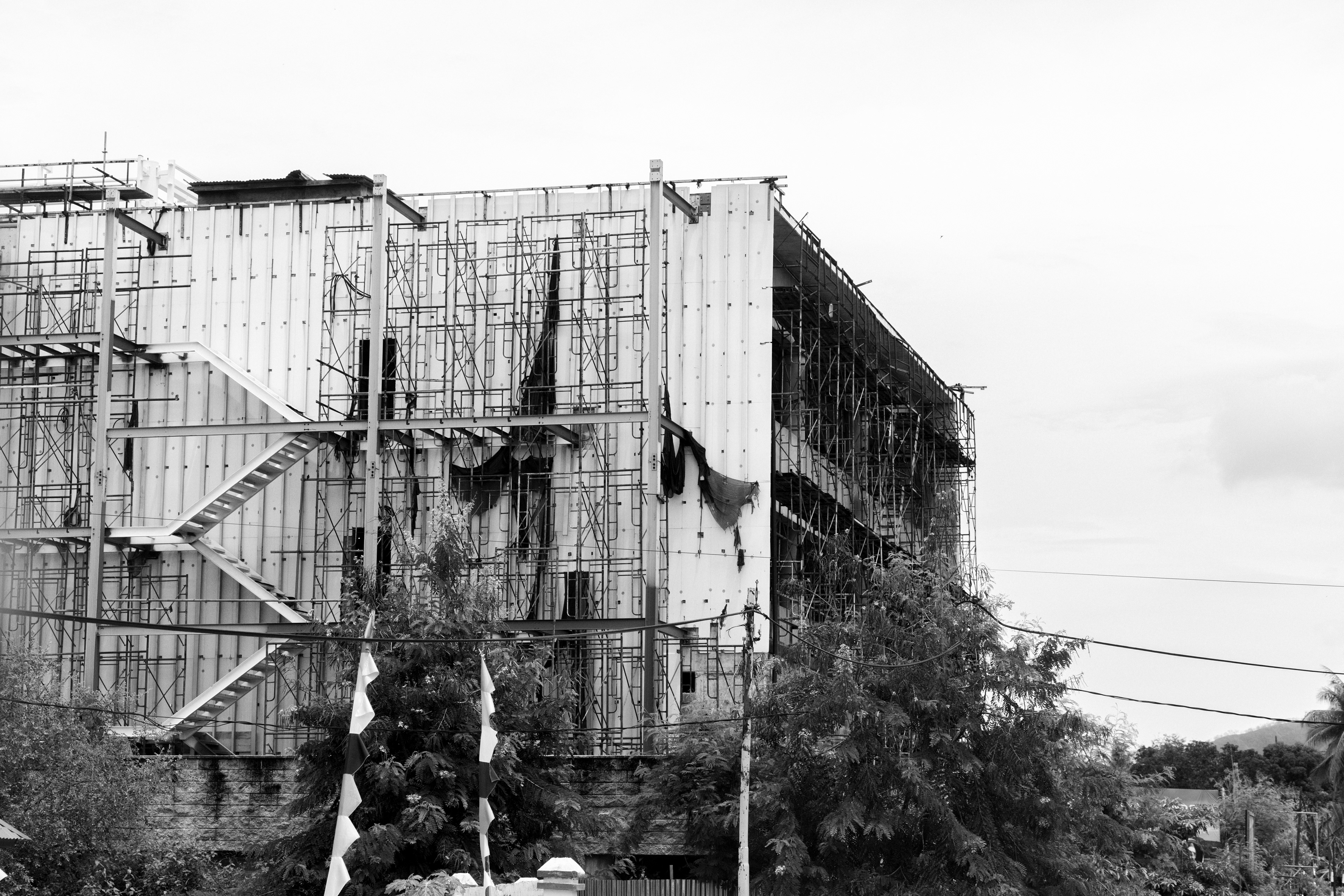
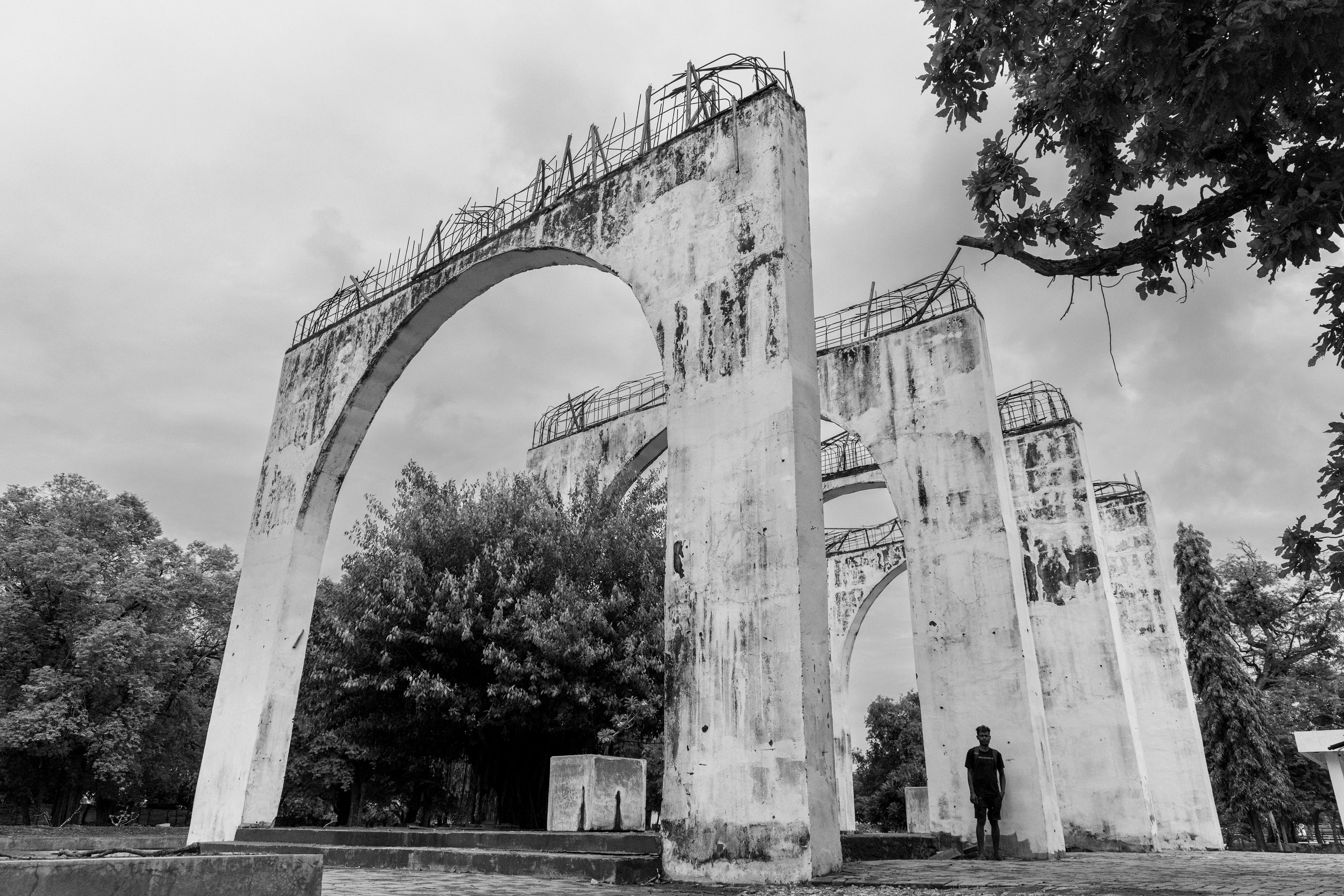
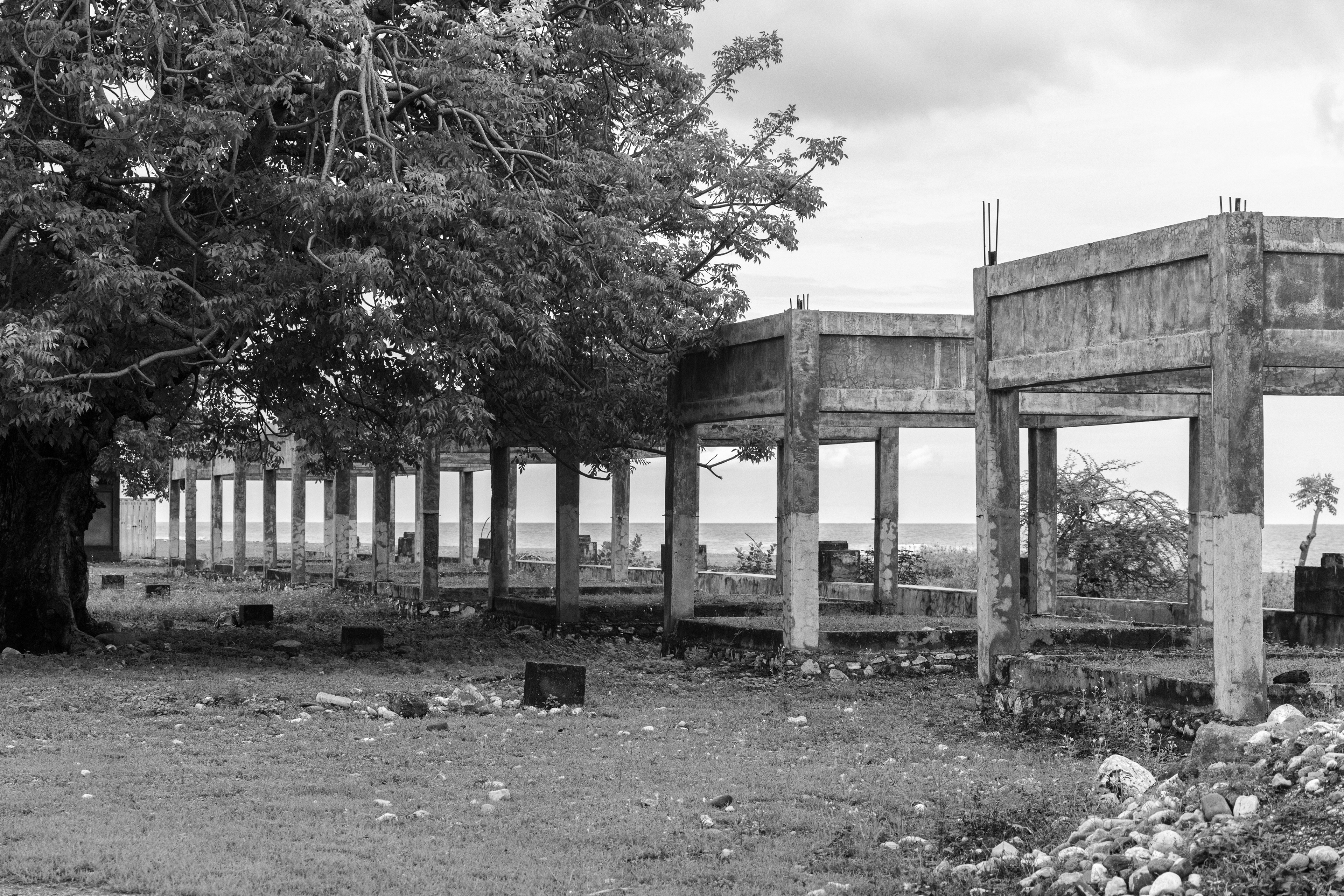
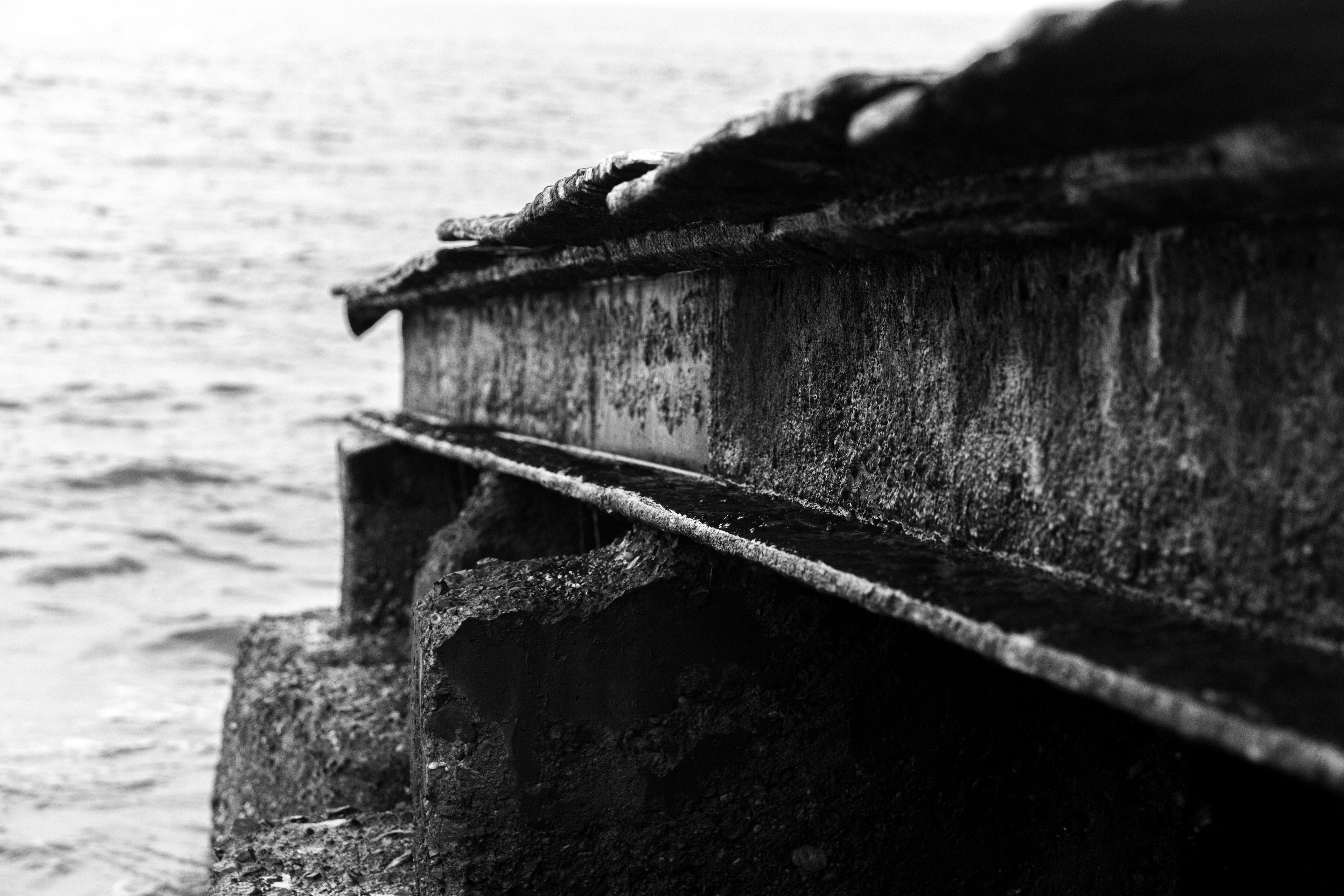
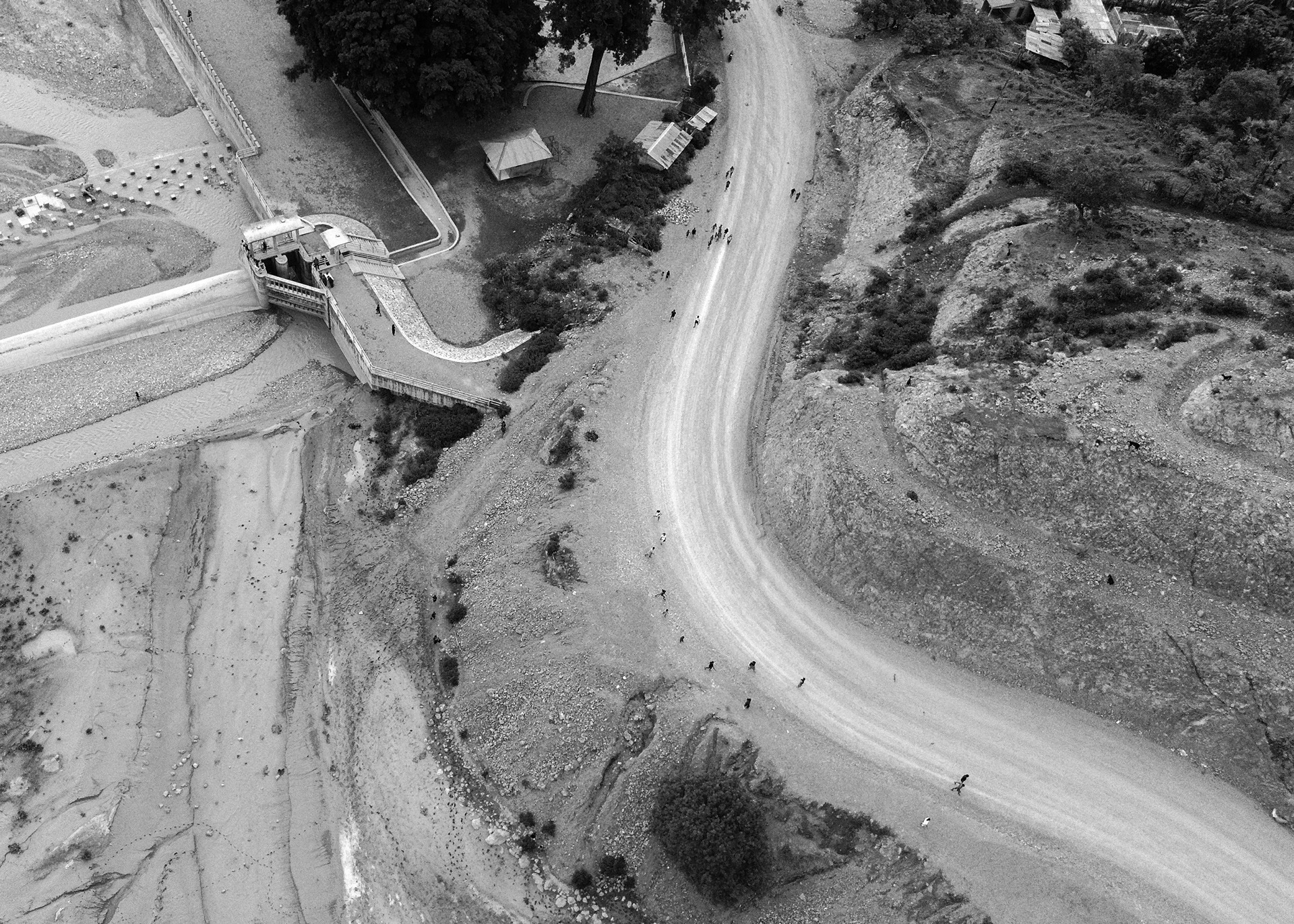
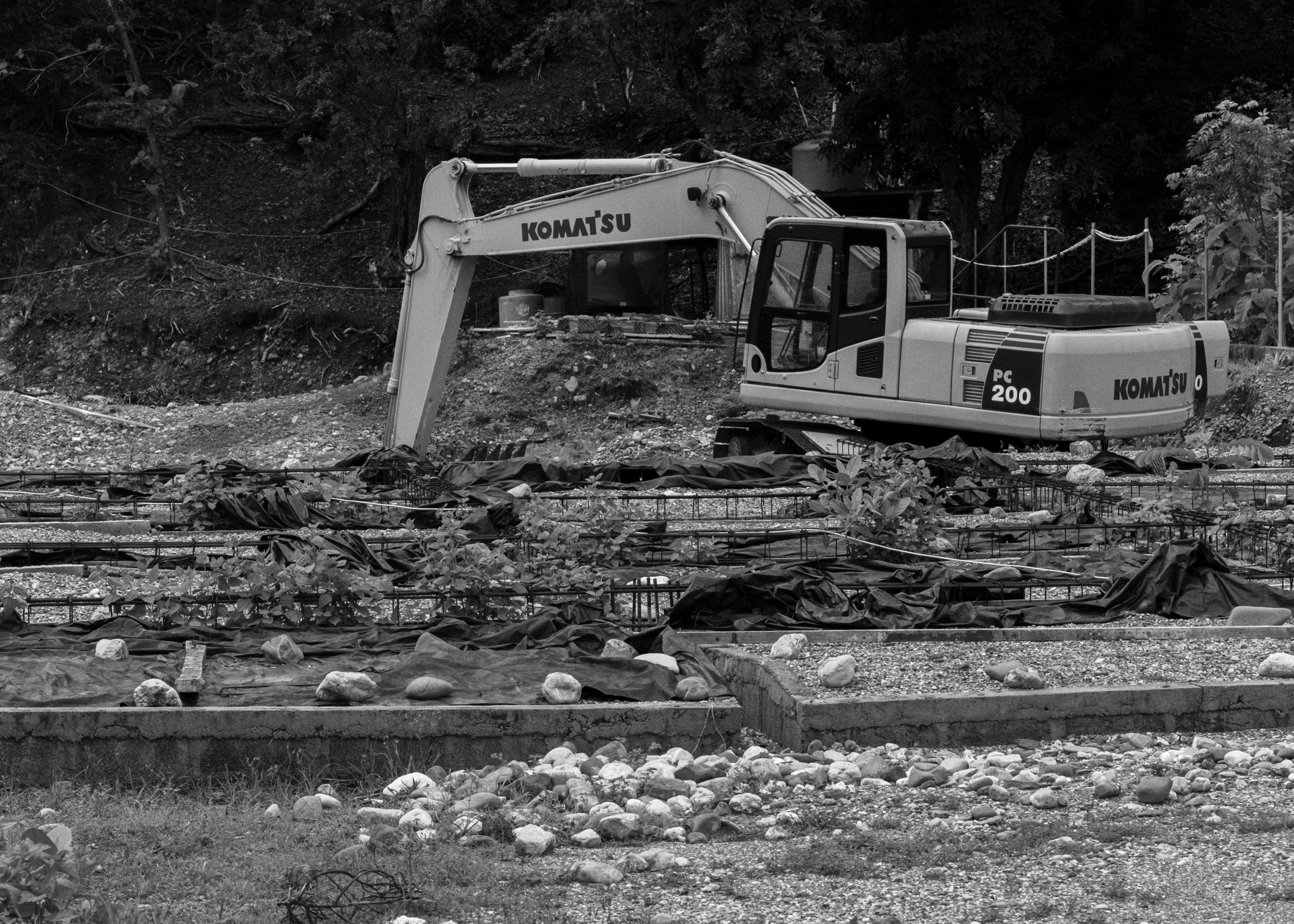
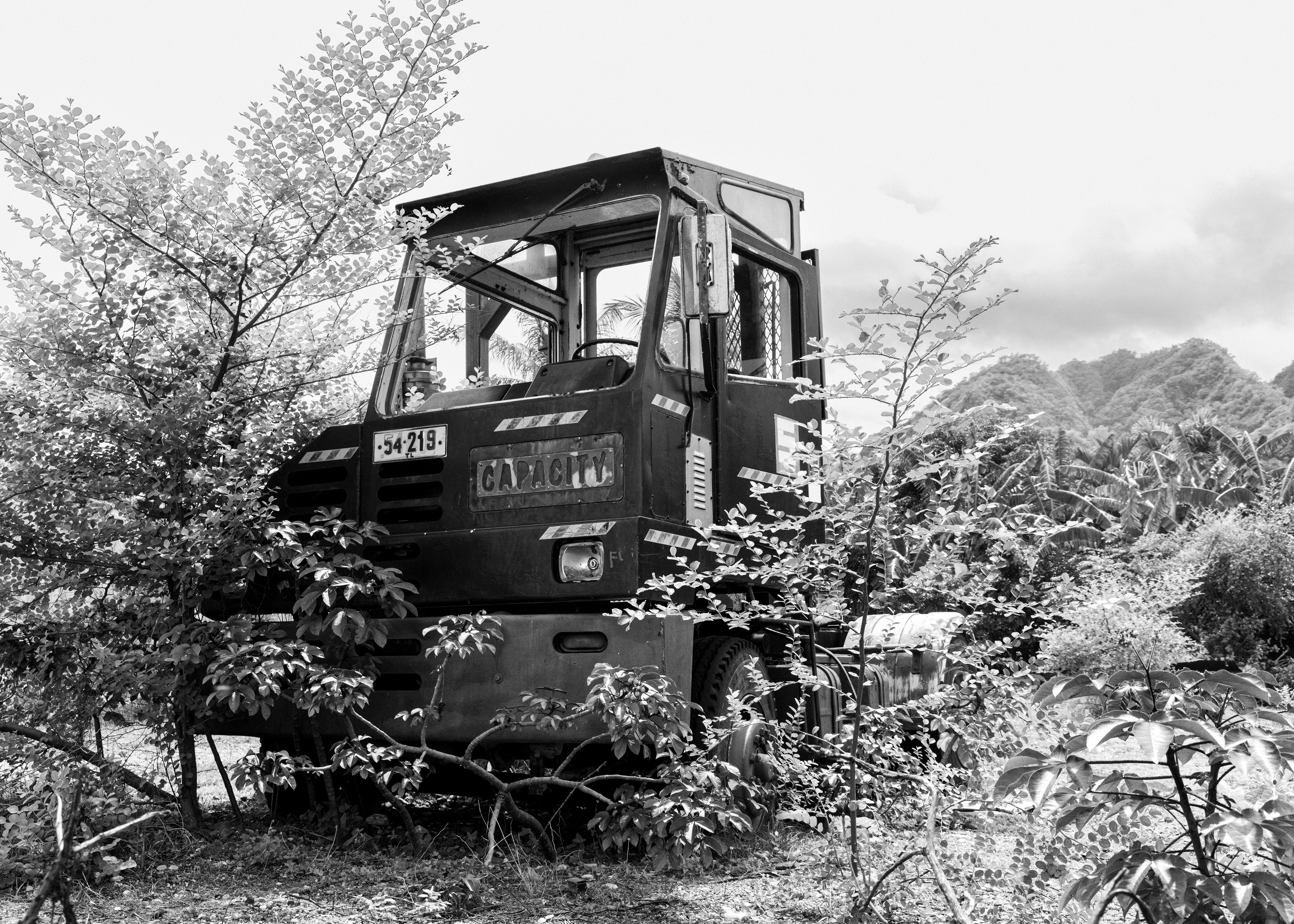
"Unfinished Landscapes"_Rikii Altamirano
Unfinished Landscapes is an intimate, quiet exploration of interruption, examining the invisible boundaries between intention and consequence. Set in Oecusse, Timor-Leste, a region that is simultaneously isolated yet marked by rapid, often disrupted development, this series captures the trace of human aspirations that remain incomplete. The work avoids focusing on what is built but instead turns its lens toward the subtle imprints left behind when the pulse of development fades away.
Rather than presenting a narrative of progress or stagnation, these images prompt a reflection on what remains after projects are abandoned, before the land is reclaimed by nature or reimagined for new purposes. The voids in the landscape, where buildings stand unfinished or construction equipment sits idle, speak not just of physical emptiness but of unspoken histories, unmet promises, and the silent echoes of lives that once centred around these spaces. The absence of human activity becomes more than just a physical condition; it embodies a broader existential question: What happens to the land when we stop shaping it?
Through this lens, the photographs beckon the viewer to look beyond the surface and into the undercurrent of human interaction with the environment. The land in Oecusse, rich with its own history and memory, bears witness to the promises of development that have been interrupted by economic instability, political change, or perhaps a deeper, systemic neglect. Each frame is a subtle invitation to pause and reflect on these suspended moments, on what these unfinished projects were meant to represent, and what they ultimately failed to sustain. What was intended as growth is now suspended in time, as if caught between the aspirations of the past and the uncertain future.
The images are not a critique of development but rather a meditation on the tensions between growth and its aftermath. What we are left with are spaces that embody a disconnect, between human ambitions and the land’s capacity to bear them, between cultural and economic forces that shape the landscape and the individual lives that intersect with it. This work acknowledges that development, when left incomplete, casts a long shadow, its legacy not just visible in what was built but felt in what was left behind. It is in these quiet, unfinished landscapes that a deeper conversation unfolds: What have we, as a society, become in our relationship with the land? And in the absence of these human structures, what does the land ask of us?
Unfinished Landscapes does not seek to answer these questions but to evoke them. The photographs aim to expose the layered complexities of development: the fleeting hope of what could have been, the frustration of promises unfulfilled, and the silent consequences of growth that often goes unchecked. The spaces we shape are not merely physical constructs but are reflections of our values, our aspirations, and ultimately, our impermanence. In these suspended spaces, where the flow of development has faltered, we are invited to consider not just what is missing but what we may have lost along the way.
This body of work invites reflection on our relationship to the land, on how we leave our mark upon it, and on what remains when we are no longer present to tend to it. It poses the question of whether, in the act of shaping the landscape, we are also, in some way, losing the very ground we stand on. In this silence, there is an enduring call for reevaluation, for awareness of the unseen consequences that linger long after we move on.
